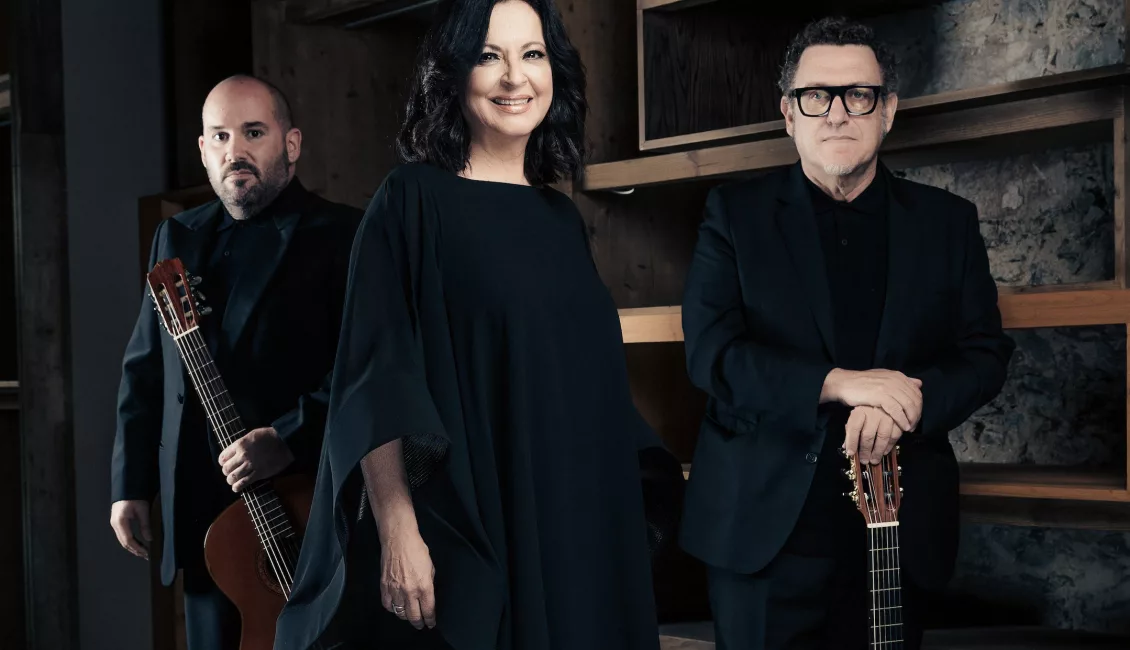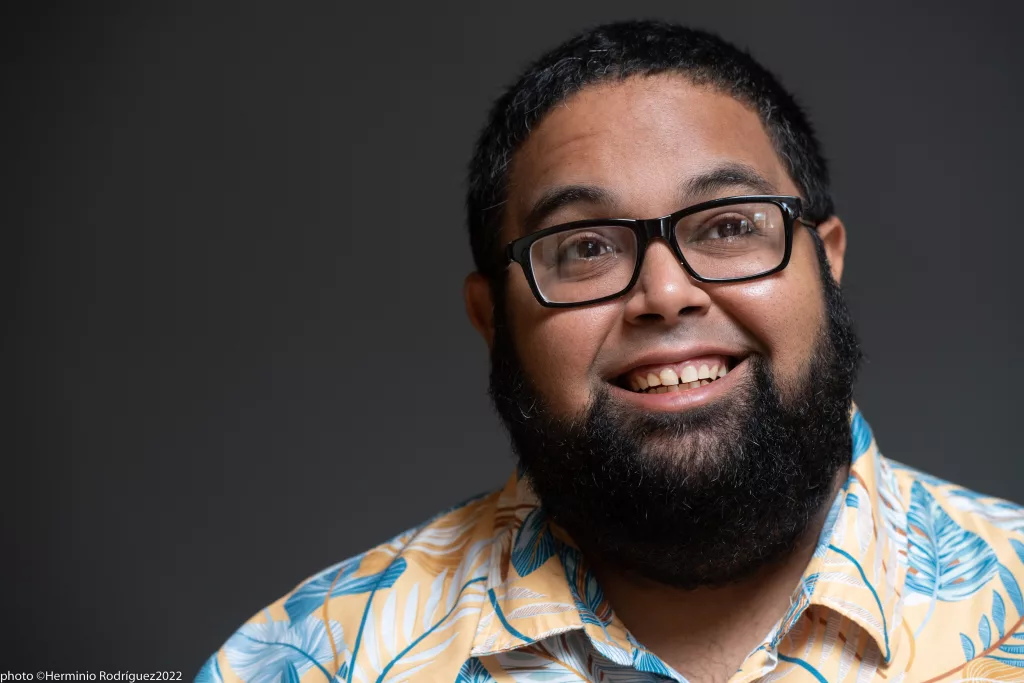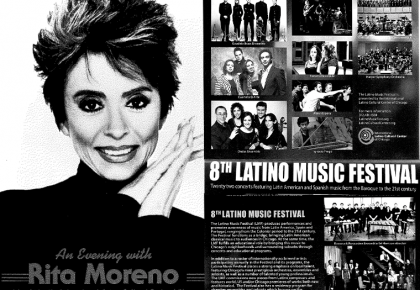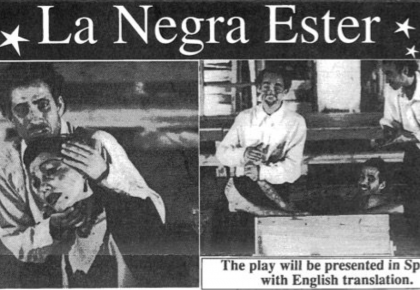
This content has been archived. It may no longer be relevant
CHICAGO (February 1, 2023) – The International Latino Cultural Center of Chicago (ILCC) and the Segundo Ruiz Belvis Cultural Center (SRBCC) explore the cultural commonalities between Puerto Rico and the Canary Islands with the ILCC’s first concert in their year-round Chicago Latino Music Series. Considered one of the most important female voices in the Canary Islands, Olga Cerpa and her group Mestisay will be performing tracks of their new album Palosanto at SRBCC, 4048 W. Armitage Ave., on Saturday, February 11th. Puerto Rican bomba and plena singer Leró Martínez Roldán and the Ruiz Belvis Bomba Collective will be opening for Mestisay. The concert starts at 8 p.m. and is free with a $10 suggested donation (reservations are strongly recommended). For more information, visit latinoculturalcenter.org.
The similarities between Canarios and Boricuas have intrigued generations of islanders from both sides of the Atlantic for decades. Probably the most evident similarity between the smallest of the Greater Antilles and the southernmost archipiélago in Spain is found in the language. However, the strong connection between these two cultures goes beyond the Caribbean Spanish accent, and can also be seen in its music, aboriginal roots, and profound ties to the African continent.
Olga Cerpa & Mestisay blend the Canary Island’s traditional rhythms with those of the countries that have a long relationship with the island such as Portugal, Mexico, Cuba and the African continent. Nominated for two Latin Grammys, Olga has shared the stage with such artists as Omara Portuondo and Joan Manuel Serrat, among others. Olga and Mestisay use “Jallo,” an insular word that refers to the objects that the sea throws to the Canary shores, to create splendid songs inspired by the musical influences that reach the beaches of their native land. Latin America, Portugal, Cape Verde and the African continent leave their mark as they revisit island songs that have been “found” in these years of musical journeys and that they rediscover for themselves and their audience through original arrangements.

Born into an artistic family in Santurce, Puerto Rico, Leró Martínez Roldán learned how to sing plena by watching and listening to his father Juan “Llonsi” Martínez Román, a legend in the island’s plena circuit. Leró, a seasoned composer, vocalist and percussionist,has offered workshops and performed alongside such genre stalwarts as Los Sapos del Caño, Los Tambores de Félix Alduén, Plena Adentro and his own group Boricua Soy. He has also offered workshops at the SRBCC and has flown directly from Puerto Rico to perform as part of the Center’s annual arts and culture series. While his life is marked by extraordinary contributions to folkloric Afro-Puerto Rican music, one of the highlights of his career is accomplishing his childhood dream of working as one of the lead singers for the Bobby Valentin Orchestra.
Evolving from the Chicago Latino Music Festival, the series presents a wide overview of the many musical styles representing the Latino diaspora worldwide from the Spanish Medieval period to the music written and performed today across all genres and styles, including but not limited to classical, folk, afro-Latino and Latin Jazz.
ABOUT THE ILCC
The International Latino Cultural Center of Chicago is a Pan-Latino, nonprofit, multidisciplinary arts organization dedicated to developing, promoting, and increasing awareness of Latino cultures among Latinos and other communities by presenting a wide variety of art forms and education including film, music, dance, visual arts, comedy, theater and culinary arts.
The Center prides itself for its outstanding multidisciplinary local and international cultural programming which spans Latin America, Spain, Portugal, and the United States.
Born out of the Chicago Latino Film Festival, The International Latino Cultural Center of Chicago also produces other programs, including the Chicago Latino Music Series (formerly known as the Latino Music Festival), which is celebrating its 17th edition this year; Film in the Parks, also in its 17th season; the monthly Reel Film Club, already in its 15th year; and many others. All in all, the audience has grown from 500 people in 1985 for the first Chicago Latino Film Festival to more than 70,000 (Latinos and non-Latinos) who enjoy the year-round multidisciplinary cross-cultural exchanges offered by the Center.
ABOUT SEGUNDO RUIZ BELVIS CULTURAL CENTER
Segundo Ruiz Belvis Cultural Center (SRBCC) is the longest-standing Latino cultural center in Chicago. Established in 1971, it was named in honor of Segundo Ruiz Belvis, a Puerto Rican patriot and member of a secret abolitionist society that freed slave children under Spanish rule. In that spirit, SRBCC realizes its mission to preserve and promote appreciation of the culture and arts of Puerto Rico with a focus on its African heritage.
SRBCC realizes its program philosophy by developing multi-disciplinary programs, with a strong focus on supporting professional artists and creative youth, that highlight the presence of African cultures in the Caribbean. SRBCC celebrates Afro-Puerto Rican and Afro-Latino cultural traditions through dance, music, theater, and visual arts.

